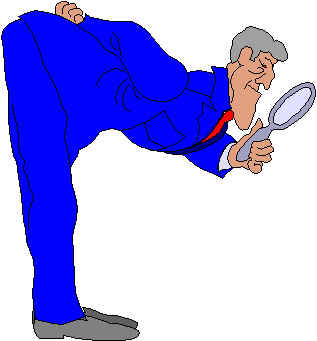
How to prepare for a school project
Elsewhere in this web book there is a page called "Questions For Professor Kaiser." From this web page I often receive questions asking "where do I go to do a project for a term paper, science fair, extra credit etc. on the subject of vision or visual perception?"

My advice is that the student should go to their library, speak with the librarian or the person behind the reference desk. Tell them in what you are interested in and ask them to recommend a book that will help introduce you to the general subject of your choice. If you are interested in vision or visual perception a good starting point often is an introductory psychology or introductory biology text book. These books almost always contain chapters dealing with the senses. Some will even have separate chapters dealing with vision or visual perception. You can also go to Library Spot which will help you get started and also with the final step, writing the paper.
Read these chapters to obtain general knowledge about the subject. You may even find specialized texts aimed at your grade level. While reading try to determine what interests you. It is often useful to look at more than one introductory text. Different authors rarely treat the same subjects in an identical manner.
So far I have not said one word about the World Wide Web. This is not an over sight. In my judgement one should go to the library first. There are at least two good reasons for this. 1. In my opinion material published in reputable books are usually presented in better form for the average student. By this I mean that the material is aimed at a particular level, is more comprehensive and probably has been reviewed by experts in the field. 2. While looking on the book shelves for a particular book one can often find an even better book sitting near the one you are seeking. After you have exhausted the reading material in your library on subject of interest, then go to the WWW.
If some aspect of visual perception is your interest you could go to my Web Book, The Joy of Visual Perception. The subject of visual perception is a very big one and it would be impossible to do a project on that specific subject without writing an entire book. So once you have determined the aspect of visual perception interests you, go to the Table of Contents and Subject Index of my Web Book and search through them for key words related to your specific area of interest. When you find these words just click on these topics and you will automatically be transferred to the right part of the Web Book.
For example, let's say that you go into an introductory psychology book, find a chapter on vision, and realize that it is the area of color that interests you the most. After finding all the books and reading all you can about color, color vision, color perception now go to the web and do a search on color. You will find lots of info, probably more than you can handle. If you go to my Web Book you will find a link in the Table of Contents called "Color/Color Vision." Click on it and you will find information on that topic. You can also go to the "Subject Index" and find links on color and other color related topics.

This example could be repeated for many more areas of vision and visual perception. Further, these general guidelines are not specific to finding information on vision or perception. You can use this approach to investigate any topic of your choice.
You will not find it very helpful to start searching the Web before doing any reading in the general area. Unfortunately, in recent years people have started to use the WWW as a substitute for going to the library and reading books. Maybe one day the WWW will be good enough to do that. In my judgement it is not good enough to do that today. At least one notable exception is Dr. Chudler's website. For visual perception experiments I can recommend his Vision web pages.
What a lot of people do not appreciate is that anyone can put anything they like on the WWW. That usually is not true for books. Publishers usually (but unfortunately not always) require that books be reviewed by experts in the field before they decide to publish. If the experts give favorable reviews the authors will have their books published. This peer review process does not guarantee that only good stuff is published. But it does increase the probability that good and accurate information will be made available. In 1996 a friend of mine and I published a book on human color vision. Twenty-nine experts reviewed the chapters of our book. These reviews and our subsequent changes to the chapters made this a pretty good book.
We must bear in mind that which was accepted as true in one time period may not be accepted as true in a later time period. New research often shows that previous theories, hypotheses etc., are wrong. Taking this situation into consideration newer text books frequently are more trustworthy than older ones.
Remember, I said that anyone can put anything on the Web that they like. That includes me. My web book, just like other things on the Web, has not been formally reviewed prior to being posted on the Web. Consequently, the reader should beware. Check out the credentials of the authors who post material on the Web. See if they come from reputable universities or research institutes. Check to see if they have previously published in reputable scientific journals, whether reputable publishers have published their books, whether other scientists reference their work. Double check what you read on the Web by seeing if the same information exists in current text books. I know this seems like a lot of work. Often people take the attitude that if they see it in neatly printed form it must be good. That definitely is not the case. Remember this wise saying. "Garbage in garbage out." Interestingly that does not apply to compost. <grin>
The final step in a research project is writing the paper. Here is a link to a website on Library Spot that will help you to write the paper.

You may think that I am unduly knocking the Web, especially if your teachers have told you to go there to get information. But I am not. The Web is still a very new medium and anyone can easily publish anything they want on the Web. Therefore, it is important for us to be very cautious about what we read there and what is to be believed.
One final word about the WWW. A very good search engine to use when look for information on the Internet is http://www.google.com. It is the search engine that I use almost exclusively.
Table of Contents
Subject Index
Table of Contents [When not using frames]